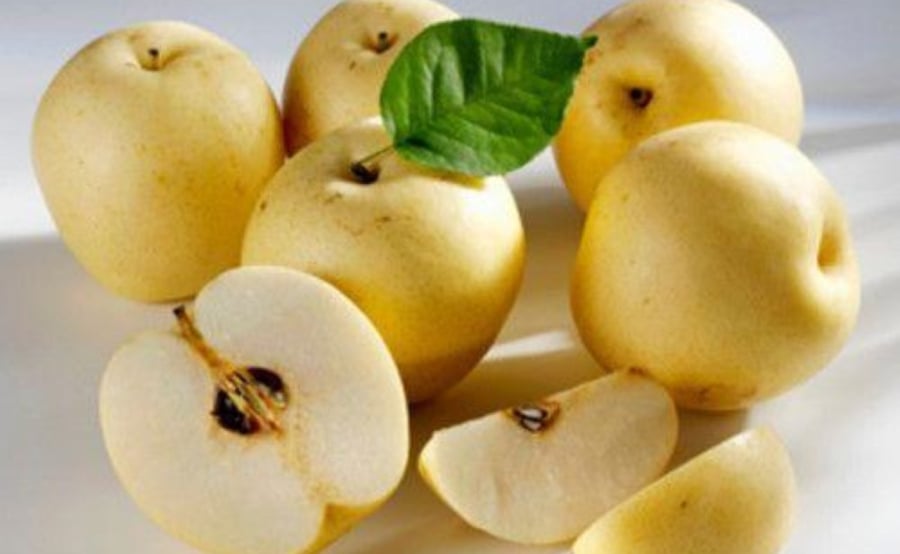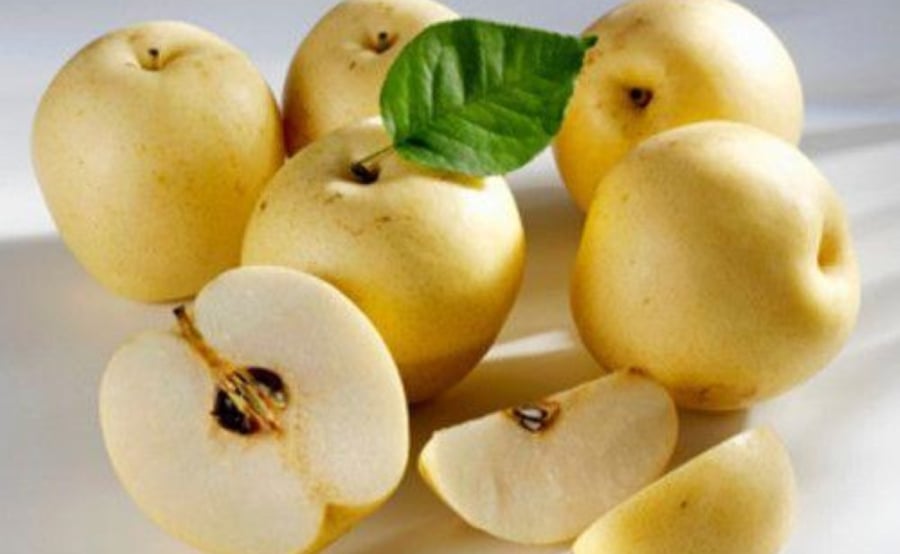Nutritional Value of Pears
According to the United States Department of Agriculture, a medium-sized pear contains the following:
– Calories: 101
– Protein: 0.36 grams (g)
– Carbohydrates: 15.2 g
– Fiber: 3.1 g
– Potassium: 116 mg
– Calcium: 9 mg
– Vitamin C: 4.3 mg
– Folate or Vitamin B9: 7 micrograms

Pears Are Nutritious and Offer a Range of Health Benefits
7 Health Benefits of Pears
The nutritional profile of pears contributes to a variety of health advantages, such as those listed below:
1. Pears Aid in Blood Sugar Control
Pears, which have a low glycemic index and a high fiber content, are an excellent choice for diabetics. Additionally, pears possess several qualities that help regulate blood sugar levels.
According to a study published in the American Journal of Clinical Nutrition, individuals who consumed five or more pears per week had a 23% lower risk of developing type 2 diabetes.
Moreover, a study published in the Journal of Food Science suggests that the flavonoids present in pears may also contribute to lowering the risk of type 2 diabetes.

2. Pears Promote Heart Health
The high fiber and antioxidant content in pears make them excellent for heart health. According to a study published in Frontiers in Nutrition, an antioxidant called anthocyanin may protect against coronary artery disease.
The fiber in pears also helps lower cholesterol levels, a risk factor for heart disease. Potassium in pears contributes to controlling high blood pressure, another risk factor for heart-related issues. Thus, pears make a great addition to a heart-healthy diet.
3. Pears Support Weight Loss
If you’re considering which fruit to include in a weight-loss-friendly diet, pears are an excellent option.
According to a study published in the Journal of Nutrition, obese women who consumed three pears as part of six daily meals lost 1.22 kg over 12 weeks. Additionally, pears are low in calories, high in water content, and rich in fiber, which helps you feel fuller for longer, aiding in weight loss.
4. Pears Help Regulate Blood Pressure
High blood pressure, or hypertension, can damage your arteries and lead to problems with your heart, brain, kidneys, and eyes. According to Harvard Health, consuming whole fruits, including pears, may help lower the risk of hypertension. Additionally, the potassium in pears can help lower blood pressure, as noted by the Harvard Medical School.
5. Pears Are Good for Digestive Health
Fiber is essential for digestive health, and pears are an excellent source. A study published in the journal Nutrients found that pears contain both soluble and insoluble fiber, which help regulate bowel movements and promote digestive health.
If you’re constipated, pears may be a helpful remedy! Pears also contain prebiotic fiber, which contributes to overall digestive health.
6. Anti-inflammatory Properties of Pears
Inflammation is a natural immune response that helps your body fight infections, toxins, and other harmful agents.
However, chronic inflammation can lead to issues such as asthma, cancer, type 2 diabetes, and Alzheimer’s disease.
According to a study published in the journal Molecules, pears are rich in flavonoid antioxidants, which help reduce inflammation and lower the risk of these chronic conditions.
7. Pears Boost Immune Function
Pears are a nutritious fruit, packed with vitamins, copper, and fiber, all of which contribute to a stronger immune system.
A study published in the Pharmaceutical Biology Journal found that pears possess properties that scavenge free radicals and enhance immune function. The vitamin C content in pears also stimulates the production of white blood cells, which can lower the risk of illness by boosting immunity.
How Many Calories Are in a Lychee? Can Eating Lychees Make You Fat?
Pears are a delightful fruit with a crisp, juicy texture and a sweet flavor. Their white flesh is encased in a vibrant green or golden yellow skin, making them a refreshing and aesthetically pleasing treat. But what about their nutritional value? Are pears calorific, and will eating them make you gain weight?


































